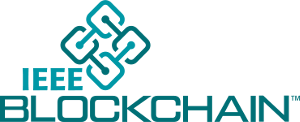IEEE Blockchain Technical Briefs - June 2019
A collection of short technical articles
Blockchain Technology – Prospects, Challenges and Opportunities
By Muhammad Fateh Khan Sial, Assistant Professor, Department of Electrical Engineering, University of Lahore
Blockchain is a digital database that is distributed across a large network. It is a sequence of interconnected blocks comprising of list of transaction records. Blockchain is considered to be a public ledger in which all transactions are stored in the form of blocks. The chain expands as each new block is appended to it. Transactions cannot be altered once they are made part of blockchain. The size of database keeps on increasing as new blocks are appended to the older ones. A transaction can take place in a decentralized fashion, thus, saving cost and improving efficiency. Every time an update is made to the database on a network node, it is automatically updated across the entire network. Total number of transactions stored in a block depends on the size of each transaction and the block. Every transaction must be approved by the network nodes, each of whom verifies its validity. This block is validated using consensus algorithms where majority of network nodes approve the transaction.
Blockchain Facilitated N-Layer Data (Pool) Sharing in the Cloud
By Keke Gai, School of Computer Science and Technology, Beijing Institute of Technology; Kim-Kwang Raymond Choo, Department of Information Systems and Cyber Security and the Department of Electrical and Computer Engineering, University of Texas at San Antonio; and Liehuang Zhu, School of Computer Science and Technology, Beijing Institute of Technology
The potential of blockchain for a broad range of applications (e.g., to establish a secure and trustworthy cloud-based data sharing pool) has been explored in recent years, partly due to its unique characteristics, such as tamper resistant, timestamp, and transparency. However, to address commonly raised concerns relating to the sharing of sensitive data, a number of challenges need to be resolved. In this paper, we provide a blockchain-based n-layered approach for enabling sensitive data sharing. One potential use case is the U.S. Department of Homeland Security (DHS)’s Automated Indicator Sharing (AIS) program.
Using Intermediate Brokers and Blockchain to Improve the Privacy and Accountability of Smart City Services
By Sayed Jahed Hussini, Ph.D. candidate, Computer Science Department, Western Michigan University, Student Member, IEEE; and Ala Al-Fuqaha, Ph.D. Professor and Director, NEST Research Lab, College of Engineering & Applied Sciences, Western Michigan University, Senior Member, IEEE
Smart City services rely on data exchanges between producers and consumers that do not necessarily belong to the same administrative domains. In order to facilitate data exchange, services have to use brokers. Broker-based data exchange architectures require both data producers and consumers to trust a third-party (i.e., the broker). The third-party trust however has negative implications on the privacy of consumers and producers. In this study, we propose a federation based broker architecture in order to improve privacy. The architecture introduces a degree of separation between producers and consumers via publisher-facing and subscriber-facing brokers. Furthermore, to improve accountability and data provenance we propose a blockchain augmented architecture.
Smart Contracts Based Agile Software Development
By Rong Liu, Associate Professor, Stevens Institute of Technology; and Hemang Subramanian, Assistant Professor, Florida International University
This article aims to develop a smart contract system to manage agile software development projects. Smart contract is one of the core enabling technologies of blockchain, a class of distributed-transaction systems which has the potential to automate business processes including software contracting. Smart contracts are verifiable contracts, enforced in terms of contractual obligations, and, are validated by a network of nodes that provide a consensus, to validate transactions. Owing to the decentralized nature of blockchains, smart contracts infrastructure would reduce other administration costs, verification costs and storage costs that are typical of centralized systems. Moreover, combined with other blockchain technologies, smart contracts are believed to address the lack of trust, traceability, compliance, and stakeholder management issues in multilateral collaboration scenarios.
2018-2020 IEEE Blockchain Technical Briefs Editorial Board
Subscribe to the IEEE Blockchain Technical Briefs
Join our Blockchain Technical Community and receive our Technical Briefs by email.
IEEE Blockchain Technical Briefs Editorial Board
Gora Datta, FHL7, SMIEEE, SMACM, Managing Editor
2024 Editorial Team
Justin Y. Shi, PhD, Editor-in-Chief
Boleslaw K. Szymanski, PhD
R.L. Shankar, PhD
Imran Bashir
Nicolae "Nicu" Goga, PhD
Constantin “Viorel” Marian, PhD
View the 2023 IEEE Blockchain Technical Briefs Editorial Board
View the 2022 IEEE Blockchain Technical Briefs Editorial Board
View the 2018-2020 IEEE Blockchain Technical Briefs Editorial Board
Past Issues
Read the top five most popular IEEE Blockchain Technical Briefs articles.
Read more (PDF, 731 KB)























